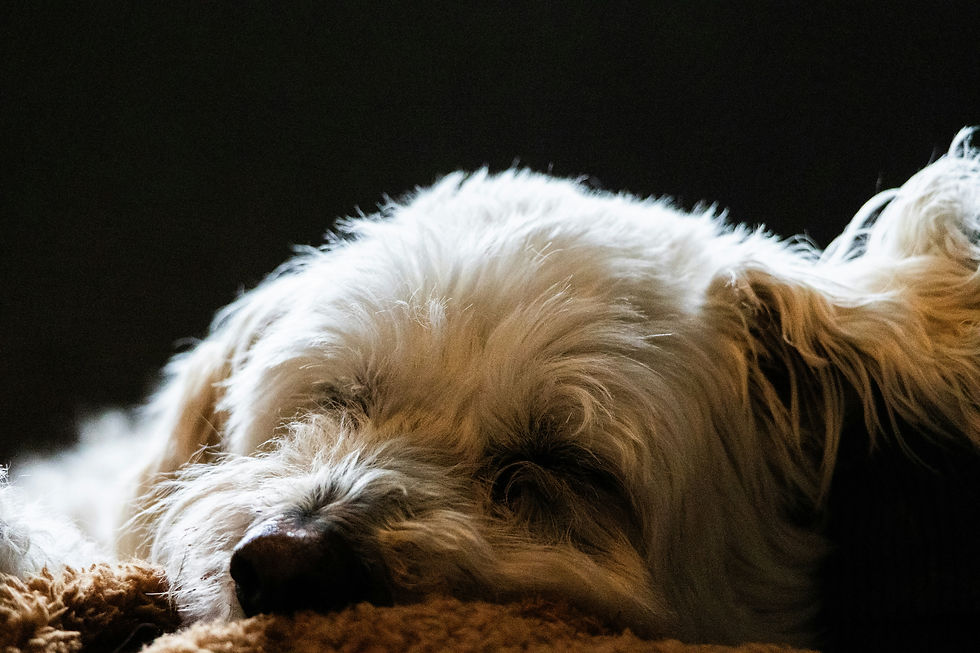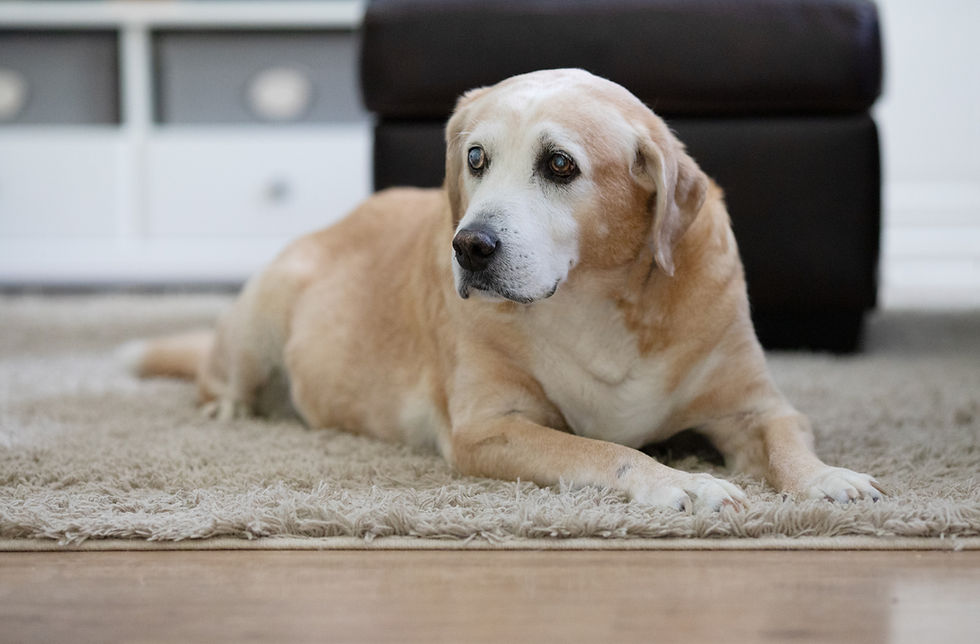Household Dangers to Your Pet: What Every Pet Owner Should Know
- River Valley Gateway

- Sep 16, 2024
- 4 min read
Our homes are meant to be safe havens for our pets, but they can also be full of hidden dangers. From common household items to plants, many things that seem harmless to us can pose serious risks to our furry friends. Whether you have a dog, cat, or other pet, it’s important to be aware of the potential hazards in your home.
In this blog, we’ll explore some of the most common household dangers to pets and how to keep your home pet-safe.

1. Toxic Foods
Many foods that are perfectly fine for humans can be harmful—or even deadly—for pets. Some of the most common toxic foods include:
Chocolate: Contains theobromine, which is toxic to dogs and cats and can cause vomiting, diarrhea, tremors, and even death.
Grapes and Raisins: These can cause kidney failure in dogs, even in small amounts.
Onions and Garlic: These foods can damage red blood cells in dogs and cats, leading to anemia.
Xylitol: A sugar substitute found in sugar-free gum, candy, and some peanut butter brands, xylitol can cause a dangerous drop in blood sugar and liver failure in dogs.
Tip: Always keep food out of reach of your pets and avoid feeding them table scraps.
2. Household Cleaning Products
Many cleaning products contain chemicals that can be harmful to pets if ingested or even inhaled. Products to be cautious of include:
Bleach: Can cause burns in the mouth and throat, drooling, vomiting, and difficulty breathing.
Ammonia: Can irritate the respiratory system and cause coughing or difficulty breathing in pets.
Laundry Detergents: Pods and detergents can cause serious gastrointestinal upset, drooling, and vomiting if ingested.
Tip: Use pet-friendly or non-toxic cleaning products whenever possible, and store cleaning supplies in cabinets that pets can’t access.
3. Plants
Many common household plants are toxic to pets, particularly cats and dogs. Some dangerous plants include:
Lilies: Extremely toxic to cats, even small amounts can cause kidney failure.
Aloe Vera: While beneficial for humans, aloe can cause vomiting, lethargy, and diarrhea in pets.
Philodendron and Pothos: These popular houseplants can cause irritation in the mouth, excessive drooling, and difficulty swallowing in pets.
Tip: Before bringing any new plant into your home, check if it’s toxic to pets and keep toxic plants out of reach.
4. Medications
Both over-the-counter and prescription medications can be dangerous to pets. Common medications that pose risks include:
Pain Relievers (Ibuprofen, Acetaminophen): Can cause stomach ulcers, kidney damage, or liver failure.
Antidepressants: Can cause vomiting, tremors, seizures, or even coma in pets if ingested.
Cold and Allergy Medications: Many contain ingredients that can be toxic to pets, including pseudoephedrine.
Tip: Keep all medications out of your pet’s reach and never give your pet human medication unless directed by a vet.
5. Electrical Cords
Pets, especially curious puppies and kittens, may be tempted to chew on electrical cords. This can lead to serious injuries like electric shock, burns, or even death.
Tip: Use cord covers or keep electrical cords hidden behind furniture to prevent access.
6. Trash Cans
Trash cans often contain discarded food, packaging, or cleaning products that can be harmful to pets. For example, chicken bones can splinter and cause choking, while old food can harbor harmful bacteria.
Tip: Use pet-proof trash cans with secure lids or place trash cans in areas your pets can’t access.
7. Insecticides and Rodenticides
Chemicals used to control pests like ants, roaches, and rodents can also be toxic to pets if ingested. Many rodenticides contain anticoagulants, which can cause internal bleeding.
Tip: If you need to use pest control products, choose pet-safe alternatives and avoid placing them where your pets could access them.
8. Human Beauty Products
Cosmetics, lotions, and other personal care items can also be hazardous to pets. Some common products to watch out for include:
Hair Dye: Can cause burns or poisoning if ingested or applied to a pet’s fur.
Essential Oils: Certain essential oils like tea tree, peppermint, and eucalyptus can be toxic to pets, especially cats, if inhaled or ingested.
Deodorants and Perfumes: Contain chemicals that can irritate your pet’s skin or digestive system if licked or swallowed.
Tip: Keep beauty products stored in drawers or cabinets that pets can’t access, and never apply human products to your pet’s fur or skin.
9. Small Objects
Items like coins, jewelry, rubber bands, and toys with small parts can pose choking hazards if your pet decides to chew on or swallow them. These small objects can also cause intestinal blockages, which may require emergency surgery.
Tip: Keep small objects out of reach and supervise your pets to ensure they don’t get into anything they shouldn’t.
10. Open Windows and Balcony Railings
Pets, particularly cats, are naturally curious and might try to jump out of open windows or off balcony railings, leading to serious falls and injuries.
Tip: Always keep windows closed or use sturdy screens, and never leave pets unsupervised on balconies or high places.
Conclusion
While pets bring so much joy to our lives, they rely on us to keep them safe. By identifying and eliminating household dangers, you can create a safer environment for your furry friend. Always keep an eye on your pet’s behavior and take preventive measures to ensure their well-being. If you suspect your pet has ingested something toxic, contact your veterinarian or an animal poison control hotline immediately.
Creating a pet-safe home helps prevent accidents and ensures your pet stays healthy and happy for years to come.







